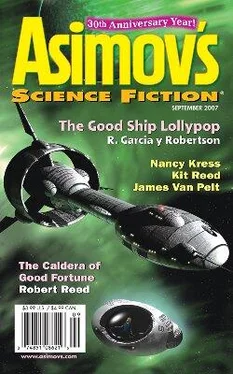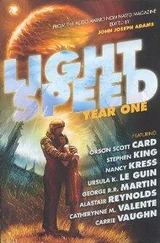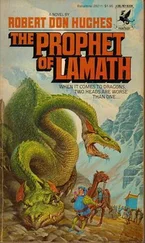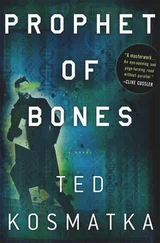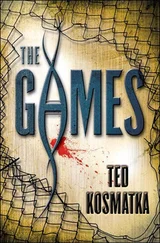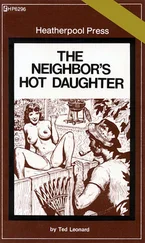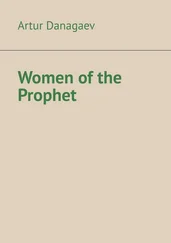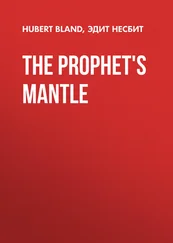Ted Kosmatka - The Prophet of Flores
Здесь есть возможность читать онлайн «Ted Kosmatka - The Prophet of Flores» весь текст электронной книги совершенно бесплатно (целиком полную версию без сокращений). В некоторых случаях можно слушать аудио, скачать через торрент в формате fb2 и присутствует краткое содержание. Год выпуска: 2007, Издательство: Asimov's Science Fiction, September 2007, Жанр: Альтернативная история, на английском языке. Описание произведения, (предисловие) а так же отзывы посетителей доступны на портале библиотеки ЛибКат.
- Название:The Prophet of Flores
- Автор:
- Издательство:Asimov's Science Fiction, September 2007
- Жанр:
- Год:2007
- ISBN:нет данных
- Рейтинг книги:5 / 5. Голосов: 1
-
Избранное:Добавить в избранное
- Отзывы:
-
Ваша оценка:
- 100
- 1
- 2
- 3
- 4
- 5
The Prophet of Flores: краткое содержание, описание и аннотация
Предлагаем к чтению аннотацию, описание, краткое содержание или предисловие (зависит от того, что написал сам автор книги «The Prophet of Flores»). Если вы не нашли необходимую информацию о книге — напишите в комментариях, мы постараемся отыскать её.
The Prophet of Flores — читать онлайн бесплатно полную книгу (весь текст) целиком
Ниже представлен текст книги, разбитый по страницам. Система сохранения места последней прочитанной страницы, позволяет с удобством читать онлайн бесплатно книгу «The Prophet of Flores», без необходимости каждый раз заново искать на чём Вы остановились. Поставьте закладку, и сможете в любой момент перейти на страницу, на которой закончили чтение.
Интервал:
Закладка:
Paul exploded from the bed, flinging the blanket ahead of him, wrapping that part of the darkness; and a shape moved, darkness like a puma’s spots, black on black—there even though you can’t see it. And Paul knew he’d surprised him, that darkness, and he knew, instantly, that it wouldn’t be enough. A blow rocked Paul off his feet, forward momentum carrying him into the wall. The mirror shattered, glass crashing to the floor.
“What the fuck?” James hit the light, and suddenly the world snapped into existence, a flashbulb stillness—and the assassin was Indonesian, preternatural silence coming off him like a heat shimmer. He carried endings with him, nothingness in a long blade. The insult of it hit home. The shocking fucking insult, standing there, knees bent, bright blade in one hand—blood on reflective steel. That’s when Paul felt the pain. It was only then he realized he’d already been opened.
And the Indonesian moved fast. He moved so fast. He moved faster than Paul’s eyes could follow, covering distance like thought, across the room to James, who had time only to flinch before the knife parted him. Such a professional, and James’ eyes went wide in surprise. Paul moved using the only things he had, size, strength, momentum. He hit the assassin like a linebacker, sweeping him into his arms, crushing him against the wall. Paul felt something snap, a twig, a branch, something in the Indonesian’s chest—and they rolled apart, the assassin doing something with his hands; the rasp of blade on bone, a new blackness, and Paul flinched from the blow, feeling the steel leave his eye socket.
There was no anger. It was the strangest thing. To be in a fight for his life and not be angry. The assassin came at him again, and it was only Paul’s size that saved him. He grabbed the arm and twisted, bringing the fight to the floor. A pushing down of his will into three square inches of the Indonesian’s throat—a caving-in like a crumpling aluminum can, but Paul still held on, still pushed until the lights went out of those black eyes.
“I’m sorry,” he said. “I’m sorry.”
Paul rolled off him and collapsed to the floor. He crawled over to James. It wasn’t a pool of blood. It was a swamp, the mattress soggy with it. James lay on the bed, still conscious.
“Don’t bleed on me, man,” James said. “No telling what you Americans might carry. Don’t want to have to explain it to my girlfriend.”
Paul smiled at the dying man, crying and bleeding on him, wiping the blood from his beard with a pillowcase. He held James’s hand until he stopped breathing.
Paul’s eye opened to white. He blinked. A man in a suit sat in the chair next to the hospital bed. A man in a police uniform stood near the door. “Where am I?” Paul asked. He didn’t recognize his own voice. It was an older man. Who’d eaten glass.
“Maumere,” the suited man said. He was white, mid-thirties, lawyer written all over him.
“How long?”
“A day.”
Paul touched the bandage over his face. “Is my eye…”
“I’m sorry.”
Paul took the news with a nod. “How did I get here?”
“They found you naked in the street. Two dead men in your room.”
“So what happens now?”
“Well that depends on you.” The man in the suit smiled. “I’m here at the behest of certain parties interested in bringing this to a quiet close.”
“Quiet?”
“Yes.”
“Where is Margaret? Mr. McMaster?”
“They were put on flights back to Australia this morning.”
“I don’t believe you.”
“Whether you believe or not is of no consequence to me. I’m just answering your questions.”
“What about the bones?”
“Confiscated for safekeeping, of course. The Indonesians have closed down the dig. It is their cave, after all.”
“What about my DNA samples in the hotel room, the lozenges?”
“They’ve been confiscated and destroyed.”
Paul sat quietly.
“How did you end up in the street?” the suit asked.
“I walked.”
“How did you end up naked?”
“I figured it was the only way they’d let me live. The only way to prove I didn’t have the samples. I was bleeding out. I knew they’d still be coming.”
“You are a smart man, Mr. Carlson. So you figured you’d let them have the samples?”
“Yeah,” Paul said.
The suited man stood and left the room.
“Mostly.” Paul said.
On the way to the airport, Paul told the driver to pull over. He paid the fare and climbed out. He took a bus to Bengali, and from there took a cab to Rea.
He climbed on a bus in Rea, and as it bore down the road, Paul yelled, “Stop!”
The driver hit the brakes. “I’m sorry,” Paul said. “I’ve forgotten something.” He climbed off the bus and walked back to town. No car followed.
Once in town, down one of the small side streets, he found it, the flower pot with the odd pink plant. He scooped dirt out of the base.
The old woman shouted something at him. He held out money, “For the plant,” he said. “I’m a flower lover.” She might not have understood English, but she understood money.
He walked with the plant under his arm. James had been right about some things. Wrong about others. Not a hundred Adams, no. Just two. All of Australoid creation like some parallel world. And you shall know God by His creations . But why would God create two Adams? That’s what Paul had wondered. The answer was that He wouldn’t.
Two Adams. Two gods. One on each side of the Wallace Line.
Paul imagined it began as a competition. A line drawn in the sand, to see whose creations would dominate.
Paul understood the burden Abraham carried, to witness the birth of a religion.
As Paul walked through the streets he dug his fingers through the dirt. His fingers touched it, and he pulled the lozenge free. The lozenge no evaluation team would ever lay eyes on. He would make sure of that.
He passed a woman in a doorway, an old woman with a beautiful, full mouth. He thought of the bones in the cave, and of the strange people who had once crouched on this island.
He handed her the flower. “For you,” he said.
He hailed a cab and climbed inside. “Take me to the airport.”
As the old cab bounced along the dusty roads, Paul took off his eye-patch. He saw the cabbie glance into his rear-view and then look away, repulsed.
“They lied, you see,” Paul told the cabbie. “About the irreducible complexity of the eye. Oh, there are ways.”
The cabbie turned his radio up, keeping his face forward. Paul grimaced as he unpacked his eye, pulling white gauze out in long strips—pain exploding in his skull.
“A prophet is one who feels fiercely,” he said, then slid the lozenge into his empty eye socket.
About the author
Ted Kosmatka tells us he’s a lab rat from the north coast of Indiana. Since his first sale to Asimov’s—”The God Engine” (October/November 2005)—his stories have sold to both literary and science fiction markets. He has tales forthcoming from Ideomancer and City Slab, and the play that he co-wrote, Steel and Roses, has been performed in Illinois, Indiana, and New York City. You can check out his website at www.tedkosmatka.com. Ted explores the multiverse in his third story for us and finds a dangerous road not taken by our own scientific revolution.
Интервал:
Закладка:
Похожие книги на «The Prophet of Flores»
Представляем Вашему вниманию похожие книги на «The Prophet of Flores» списком для выбора. Мы отобрали схожую по названию и смыслу литературу в надежде предоставить читателям больше вариантов отыскать новые, интересные, ещё непрочитанные произведения.
Обсуждение, отзывы о книге «The Prophet of Flores» и просто собственные мнения читателей. Оставьте ваши комментарии, напишите, что Вы думаете о произведении, его смысле или главных героях. Укажите что конкретно понравилось, а что нет, и почему Вы так считаете.
